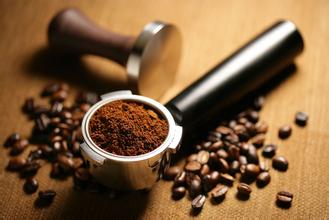Introduction to the regional treatment method G123 for the description of the flavor of Yejia Coffee Coffee Farm
Introduction to the regional treatment method G123 for the description of the flavor of Yejia Coffee Coffee Farm
Coffee trees are mostly planted in farmers' own backyard or mixed with other crops in the field, the yield per household is not much, it is a typical rural coffee. These mountain villages are foggy, like spring all year round, with a gentle breeze in summer, cool but not hot, rain but not damp, and no cold damage in winter, giving birth to a unique regional flavor of citrus and flowers. ''
Even the official research unit of Ethiopia does not know how many Arabica subspecies there are in Ethiopia. The coffee cooperatives in this mountain are certainly different from those planted in another mountain, and even small farmers in the same region grow different varieties of coffee. It has been estimated that there are at least 2000 varieties of Ethiopian coffee and even more than 4500 kinds of coffee. Compared with the fat posture of Bourbon 'SL28', the main variety to the south of Kenya, or Tibica in Central and South America and Asia, Ethiopian beans look a little malnourished. But "beans" can not be seen, Ethiopian coffee has the most citrus aroma in the world, whether it is instant coffee or freshly ground coffee, you can smell the aroma of orange or lemon when you extract it. The nose is characterized by strong floral, fruity, sour and sweet aromas, but the alcohol is slightly thicker or less dense. The biggest disadvantage is that it is easy to bake unevenly, especially sun-dried beans.
Although the Ethiopian Yirgacheffe coffee is petite, it is gentle and delicate and sweet. As the hometown of coffee, thousands of years of planting history and processing tradition in Ethiopia have created high-quality washed Arabica beans. Light baking has unique sweet aromas of lemon, flowers and honey, soft acidity and citrus flavors, fresh and bright on the palate. No milk or sugar, let the rich texture and unique soft flower scent brush your taste buds, leaving an endless aftertaste.
Yega Xuefei is a small town, 700-2100 meters above sea level, synonymous with Ethiopian boutique coffee. It has been a wetland since ancient times. The ancient saying "Yirga" means "settle down" and "Cheffe" means "wetland". The mode of production and flavor of coffee here are so outstanding that Ethiopian coffee farmers compete to take pride in the flavor of their coffee, making it the most famous coffee producing area in Africa.
Yejia Xuefei can be divided into two categories according to the different ways of handling raw coffee beans:
Category An is the washing method, and the grade standard is formulated by the American Fine Coffee Society SCAA, which is divided into Gr-1;Gr-2. The smaller the Arabic numeral is, the higher the grade is. The style of G1 Yega Chuefei is distinct, and the flavor of citrus and floral flavor in the coffee liquid is a delicious taste that everyone can't resist.
Category B is sun-treated coffee raw beans, and the grade is Gr-1;Gr-3;Gr-4;Gr-5. Similarly, the highest grade of G1 sun Yega Chuefei is fruity. Opening the freshly roasted G1 sun Yega Chevy coffee bag can subvert everyone's original understanding of coffee. Only those who have tasted the highest grade sun Yega Chevy will believe that coffee is a kind of fruit.

Important Notice :
前街咖啡 FrontStreet Coffee has moved to new addredd:
FrontStreet Coffee Address: 315,Donghua East Road,GuangZhou
Tel:020 38364473
- Prev

Flavor description of coffee beans in Incht Manor, Guatemala introduction to the taste of grinding scale varieties
The coffee variety Pacamara of Incht Manor is full, rich and changeable in flavor. Few coffee varieties not only have sour fruit, but also have obvious sweetness and variety, such as drupe, vanilla plant, tropical fruit, chocolate, sweet spice and so on. Since 2006, Coe Cup has tested the Pacamara of 30 manors. Some of the flavors are superstars, such as Honduras champion Santa Martha in 2006 and sa in 2007.
- Next

Description of Coffee Flavor in Hartmann Manor in Panama introduction to the Regional treatment method of Grinding scale production
Panamanian Hartman Manor Coffee Flavor description Grinding scale production area treatment method after the beginning of World War I, he was abandoned as a little boy. Thanks to his mother, he was able to hide in a ship bound for Pennsylvania and survived. Both of his brothers died in the war after joining the army. Luis Hartmann walked with his friends.
Related
- Does Rose Summer choose Blue, Green or Red? Detailed explanation of Rose Summer Coffee plots and Classification in Panamanian Jade Manor
- What is the difference between the origin, producing area, processing plant, cooperative and manor of coffee beans?
- How fine does the espresso powder fit? how to grind the espresso?
- Sca coffee roasting degree color card coffee roasting degree 8 roasting color values what do you mean?
- The practice of lattes: how to make lattes at home
- Introduction to Indonesian Fine Coffee beans-- Java Coffee producing area of Indonesian Arabica Coffee
- How much will the flavor of light and medium roasted rose summer be expressed? What baking level is rose summer suitable for?
- Introduction to the characteristics of washing, sun-drying or wet-planing coffee commonly used in Mantenin, Indonesia
- Price characteristics of Arabica Coffee Bean Starbucks introduction to Manning Coffee Bean Taste producing area Variety Manor
- What is the authentic Yega flavor? What are the flavor characteristics of the really excellent Yejasuffi coffee beans?

